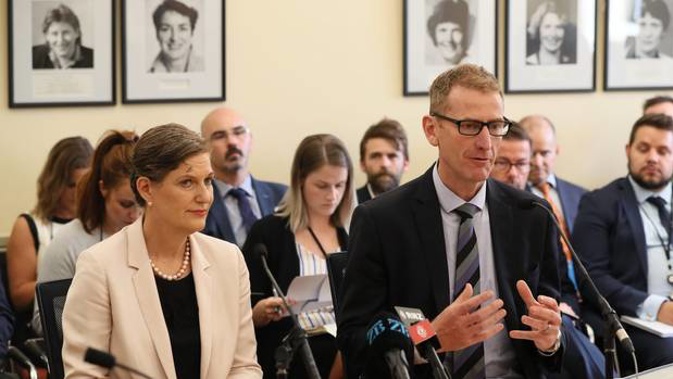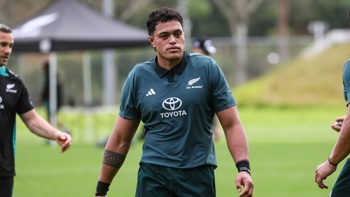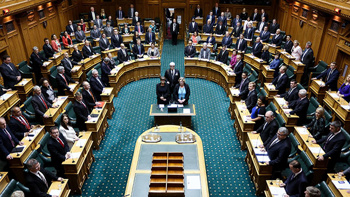
The Security Intelligence Service is focused on reducing the risk of revenge or copycat attacks following the Christchurch terror attack, its chief Rebecca Kitteridge says.
Kitteridge, the director-general of the SIS, offered her sympathies to people who lost loved ones in the March 15 attacks and to Muslim communities when she and Government Communications Security Bureau director-general Andrew Hampton appeared at the justice select committee this morning.
In her opening remarks, Kitteridge said she welcomed the Royal Commission of Inquiry which will look at the actions of both the SIS and GCSB, as well as other agencies, in the lead-up to the attacks.
"There are important questions which need answers and we embrace the opportunity to learn from this terrible experience," Kitteridge said.
The SIS had two main priorities in relation to the mosque attacks, in which 50 people were killed, she said.
"We are focused on supporting the police investigation and the resulting prosecutions. We are also focused on mitigating the risks to New Zealanders posed by possible revenge or copycat attacks."
Kitteridge and Hampton were appearing at the committee to answer questions as part of its inquiry into the 2017 general election and local body elections.
Such an inquiry is usual after an election but its focus this time around is foreign interference in elections.
Kitteridge and Hampton spoke to the media following the briefing to MPs, most of which was held behind closed doors.
It is the first time they have held a press conference since the March 15 attacks.
Kitteridge said there had been a huge number of leads provided to the SIS and police following the mosque shootings but she said while most were not security concerns, there was still a need for vigilance.
Hampton said the risk of copycat or retaliatory attacks was not confined to New Zealand domestically but its interests overseas.
The spy agencies have been accused of "looking the wrong way" when it came to seeking out extremist behaviour and the Royal Commission will look at whether there was any inappropriate concentration or priority setting of counter-terrorism resources.
Kitteridge said the SIS's approach to extremism was "ideology neutral".
"Any extremist behaviour that tends towards violence is of concern to the NZSIS."
She said right-wing extremism had been "bubbling up around the world" and its partners in other countries were also beginning to look at it.
Kitteridge would not comment on whether any white supremacists were on the SIS's watch-list. But she reiterated that the alleged gunman behind the mosque attacks had not been raised as a person of concern with the SIS, nor its partners or police.
She also made the point that a huge victim of any Isis-inspired attack would have been the Muslim community.
"Those communities were really worried that there would be a huge backlash against those communities if an attack of that kind succeeded.
"The fact that these attacks were carried out in this way and that they were the victims of it is just horrifying to me, to the country, to the people of Christchurch, to the Muslim communities and my heart goes out to those families."
Kitteridge said the intelligence services were deeply affected by the attacks.
She said the police investigation so far indicated the alleged perpetrator had acted alone.
"Of course it's important that the questions are asked whether these attacks could have been prevented, so we will go into the Royal Commission fully, openly, offering what we knew, what could we have done, along with the other security sector agencies."
Hampton said the GCSB had neither the resources nor the legal authority to constantly monitor the country's internet traffic.
"You need to have a lead or hypothesis. You need to know what question to ask, otherwise you are quite literally looking for needle in a very big haystack.
"In this case, there wasn't any evidence to suggest that this person was someone of interest.
"Similarly with regard to commentary around chat rooms or people uploading information on to the internet. You need to know where to look," Hampton said.
Take your Radio, Podcasts and Music with you









